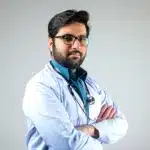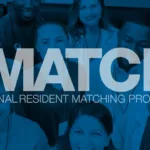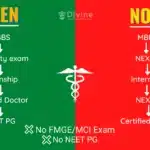The journey to study medicine abroad is an enriching experience that offers medical students a unique blend of international exposure, advanced education, and diverse cultural interactions. This guide provides a comprehensive overview of the international medical education landscape, covering the accreditation, faculty excellence, and various pathways to becoming a global doctor. It underscores the importance of careful planning, from navigating entrance exams to securing financial aid, and highlights the transformative impact of cross-cultural competence in medicine. Whether you’re transitioning from undergraduate studies or exploring fast-track programs, this guide aims to equip you with the knowledge to make informed decisions and successfully embark on a medical career overseas.
Key Takeaways
- Studying medicine abroad opens doors to global opportunities, offering access to world-class curricula and fostering cross-cultural competence.
- International medical graduates often enjoy lucrative career prospects and the potential for a significant return on investment.
- Embarking on an MBBS degree abroad can be transformative, contributing to personal growth and global health initiatives.
- Support systems such as educational consultancies, financial aid, and visa guidance are crucial for a smooth transition to studying abroad.
- Fast Track MD programs and alternative education routes provide opportunities for time-saving and direct admission, circumventing traditional entrance exams.
Exploring the Landscape of International Medical Education

Global Accreditation and Degree Recognition
When embarking on the journey to study medicine abroad, one of the most critical considerations is the global accreditation and degree recognition of the institution you choose. Accreditation by bodies such as the World Health Organization (WHO) and the Medical Council of India (MCI) is a testament to the quality of education provided and is essential for international career mobility.
For instance, Axis Institutes ensures that the medical university you select is recognized by the MCI and listed in the World Directory of Medical Schools. This recognition is crucial for those aiming to return to their home country to practice, as it facilitates the recognition of their qualifications and smoothens the transition.
The right accreditation not only validates the quality of education but also empowers graduates with the freedom to practice medicine in numerous countries, enhancing their career prospects significantly.
Moreover, the pursuit of an MBBS degree abroad presents a wealth of opportunities for medical students to gain international exposure and experience a diverse range of healthcare systems. It is important to compare the structure, duration, and recognition of medical degrees in different countries to ensure they align with your career goals. For example, the MD degree obtained in the USA is globally recognized and offers a streamlined pathway for Indian students to pursue an MD with global recognition.
Faculty Excellence and Research Opportunities
The pursuit of an overseas medical degree is not just about the curriculum; it’s about the people who deliver it. Faculty excellence is a cornerstone of top medical schools, where educators are often leading researchers in their fields. These professionals bring the latest medical discoveries and innovations directly into the classroom, providing students with an education that is at the forefront of medical science.
Engaging with faculty members who are at the cutting edge of research offers students unparalleled opportunities to participate in innovative projects and contribute to the advancement of healthcare. This hands-on experience is invaluable, as it allows students to apply theoretical knowledge in real-world scenarios, enhancing their learning and future career prospects.
- Research Initiatives: Collaborate on projects with partner universities.
- Groundbreaking Endeavors: Contribute to advancements in medical science.
- Academic Horizons: Expand your knowledge and research skills.
Studying MBBS abroad offers global opportunities, diverse specializations, financial planning, cultural growth, and extensive career prospects with residency placements and guidance.
By choosing a program with strong faculty and research opportunities, students not only gain a robust education but also lay the groundwork for a successful career in medicine, marked by continuous learning and innovation.
Navigating Entrance Exams and Admission Criteria
Aspiring to study medicine abroad requires a strategic approach to clearing the necessary entrance exams. Each country has its unique set of exams, such as the MCAT in North America or the UCAT in the UK, which serve as a gateway to their medical education systems. It is crucial to understand the specific requirements of your chosen country and institution.
Entrance exams not only assess academic readiness but also serve as a gateway to global education opportunities.
Here are some general steps to help you navigate this process:
- Research the entrance exam requirements for your target country and universities.
- Register for the exam well in advance to secure your preferred test date and location.
- Prepare thoroughly, utilizing official study materials and, if necessary, enrolling in preparatory courses.
- Take practice tests to familiarize yourself with the exam format and timing.
- Submit your scores to the universities as part of your application package.
Remember, the validity of exam results can vary, so it’s crucial to plan your application timeline accordingly. Additionally, some programs may offer alternative routes to medical education, bypassing traditional entrance exams for qualified candidates.
Embarking on the Journey: Preparing for Medical Study Abroad

Understanding the MBBS Abroad Landscape
When considering an MBBS abroad, students are faced with a myriad of choices and considerations. Financial planning is a pivotal aspect, as the cost of education varies significantly across different countries and institutions. It’s crucial to compare the tuition fees and living expenses to ensure that the chosen medical school aligns with one’s budget and financial goals.
Eligibility criteria also play a critical role in the journey to study medicine overseas. Prospective students must navigate through age requirements, academic qualifications, and language proficiency, alongside preparing for entrance exams specific to their destination country.
The decision to study medicine abroad is a transformative one, offering students the chance to immerse themselves in new cultures while pursuing their passion for healthcare.
Here is a succinct comparison of popular destinations for MBBS studies:
| Country | Entrance Exam | Tuition Fees | Global Recognition |
|---|---|---|---|
| India | NEET | Medium | Limited |
| USA | MCAT | High | Worldwide |
| UK | UKCAT/BMAT | High | Worldwide |
In summary, understanding the MBBS abroad landscape involves meticulous research and strategic planning. It’s about balancing the dream of becoming a global doctor with the practicalities of financial constraints and academic prerequisites.
Transitioning from Undergraduate Studies to MD Programs
The transition from undergraduate studies to an MD program abroad is a pivotal moment for aspiring doctors. It marks the beginning of a journey that requires not only academic excellence but also a strategic approach to meet the stringent admission criteria of international medical schools. Navigating this transition effectively is crucial for a smooth entry into the world of medicine.
For many students, the process involves a series of steps that must be carefully planned and executed:
- Researching and understanding the specific requirements of the target medical schools.
- Preparing for and taking any required entrance exams, such as the MCAT.
- Securing letters of recommendation and crafting a compelling personal statement.
- Applying for necessary visas and work permits, as graduate medical education is considered a job in many countries.
The journey from an undergraduate degree to an MD program is not just an academic leap; it is a transformative experience that shapes the future of medical professionals.
It’s important to remember that each country and medical school may have its own unique set of prerequisites and admission processes. Therefore, students must be proactive in seeking out information, adhering to deadlines, and preparing for the cultural and academic differences they may encounter.
Building a Global Professional Network
In the realm of international medical education, building a global professional network is pivotal. It’s not merely about expanding your list of contacts; it’s about cultivating relationships that can provide mentorship, collaboration, and career advancement. Students should leverage platforms like Axis Institutes’s alumni association, which offers networking opportunities and career guidance services.
- Alumni Network: Connect with professionals and alumni in the medical field.
- Extracurricular Activities: Engage in activities that develop leadership skills.
- Professional Development: Participate in programs that enhance medical expertise.
By actively engaging with international medical communities, students can enhance their employability and professional growth. The Fast Track MD program is one such initiative that facilitates this integration, preparing students for the challenges of an international medical career.
Financial considerations are also crucial. While the costs may be substantial, the potential for a high return on investment is significant. Students are encouraged to seek scholarships and financial aid to support their educational endeavors.
The Road to Becoming a Global Doctor: Medical Curricula and Training

World-Class Medical Curricula
Embarking on a medical degree overseas offers access to world-class curricula that are designed to meet the highest educational standards. These programs are meticulously structured to provide a comprehensive understanding of medical science, integrating both theoretical knowledge and practical skills.
- Global recognition: Graduates from these top-tier institutions are equipped with qualifications that are internationally recognized, particularly by WHO and MCI.
- Advanced research facilities: Students benefit from state-of-the-art research facilities, which are instrumental in fostering innovation and scientific inquiry.
- Hands-on training: A strong emphasis on practical training ensures that students acquire the necessary clinical experience to excel in their future careers.
The pursuit of a medical education abroad is not just an academic endeavor; it is a transformative experience that shapes future healthcare leaders. With a curriculum that is both rigorous and dynamic, students are prepared to meet the challenges of a rapidly evolving medical landscape.
Hands-On Training and Practical Skills
Embarking on a medical education abroad is not just about acquiring knowledge; it’s about translating that knowledge into practical skills. Hands-on training is a pivotal component of international medical programs, ensuring that students are not only competent in theory but also proficient in clinical practice. This training takes place in state-of-the-art facilities, where students engage in simulations, clinical rotations, and direct patient care under the guidance of experienced professionals.
Exposure to diverse medical systems and patient populations is a unique advantage of studying abroad. It allows students to develop a versatile skill set adaptable to various healthcare environments. Moreover, the practical experience gained is often complemented by personal growth, as students learn to navigate new cultural contexts and communicate effectively with patients from different backgrounds.
The journey of adapting to advanced healthcare systems abroad is transformative, fostering not only medical knowledge but also personal growth and resilience.
Financial considerations are also a key aspect of studying abroad. While the initial investment may be significant, the long-term return on investment can be substantial, given the enhanced career prospects and earning potential. It is essential for students to evaluate the financial implications and seek guidance on scholarships and financial aid to support their educational journey.
Cross-Cultural Competence in Medicine
In the journey to become a global doctor, cross-cultural competence is essential. Medical students who train abroad gain invaluable insights into diverse healthcare systems and patient care practices. This competence goes beyond language skills; it includes an understanding of cultural beliefs, values, and behaviors that impact health.
To develop these skills, medical schools abroad provide:
- Exposure to a diverse patient population
- Training in culturally sensitive communication
- Ethical considerations in a global context
Embracing these educational opportunities equips students with the empathy and adaptability needed to excel in international healthcare settings.
Furthermore, preparation for international licensing exams, such as the USMLE Step 2 CS, is often part of the curriculum, which emphasizes clinical skills in a multicultural environment. Students should utilize resources and support systems to navigate this aspect of their education successfully.
Alternative Routes and Fast Track Options in Medical Education

Fast Track MD Programs
Fast Track MD programs offer a condensed medical education timeline, allowing students to enter the healthcare field sooner. These programs are designed to maintain the quality of education while accelerating the journey to becoming a doctor.
- Direct entry into medical programs, bypassing exams like the MCAT.
- A comprehensive curriculum that prepares students for medical education abroad.
- Opportunities for clinical rotations in internationally recognized hospitals.
- An accelerated route to becoming a doctor, with global recognition of the degree.
The Fast Track MD pathway is an innovative approach that can lead to significant savings in both time and money, making it an attractive option for many students.
However, it’s important to carefully consider the intensity of these programs. The accelerated pace means a more demanding schedule and a heavier workload. Prospective students should assess their ability to manage the rigors of a condensed medical program before committing.
For those considering this pathway, here’s a brief overview of what to expect:
- Direct entry into medical programs, bypassing exams like the MCAT.
- A comprehensive curriculum that prepares students for medical education abroad.
- Opportunities for clinical rotations in internationally recognized hospitals.
- An accelerated route to becoming a doctor, with global recognition of the degree.
Alternative Routes to Medical Education
Beyond the conventional MBBS or MD pathways, there exist alternative routes that can lead to a successful career in medicine. These options cater to students seeking a different approach to medical education, often providing flexibility and unique advantages. For instance, Fast Track MD Programs offer an expedited journey to becoming a doctor, bypassing certain exams and reducing the overall time spent in academia.
- Axis Institutes and similar organizations partner with international universities to offer programs with state-of-the-art facilities and experienced faculty.
- Students must weigh factors like accreditation, cultural environment, and career prospects when selecting a country for their medical studies.
- Strategic planning is essential for success in these alternative programs, as highlighted by Windsor University School of Medicine.
Alternative routes can alleviate the stress of rigorous entrance exams, making the journey to a medical degree more accessible.
Ultimately, these pathways demand careful consideration of the duration of study, cost, and degree recognition in various countries. They represent a strategic choice for those willing to embrace a non-traditional medical education route.
Pathways to a Medical Career Overseas
The journey to becoming a global doctor often begins with the decision to pursue medical education outside one’s home country. Exploring alternative routes to medical education can lead to a myriad of opportunities, including Fast Track MD Programs abroad, which offer a quicker transition into the medical profession. These programs are particularly appealing for their condensed timelines and early clinical exposure.
For those considering a career overseas, it is crucial to understand the various pathways available:
- Direct entry into medical programs, bypassing exams like the MCAT.
- Comprehensive curricula that prepare students for the rigors of medical education abroad.
- Clinical rotations in internationally recognized hospitals.
- Accelerated routes to becoming a doctor, with global recognition of the degree.
The decision to study medicine abroad is transformative, offering not just an education but a passport to a world brimming with opportunities.
While the allure of global opportunities and financial planning are enticing, it is important to weigh the career prospects against the challenges. Support systems for overcoming these challenges are essential, as they provide guidance for licensing and legal considerations in various countries.
Securing Your Future: Career Opportunities and Financial Considerations

International Career Pathways in Medicine
Embarking on a medical degree overseas opens up a plethora of international career pathways for graduates. With a globally recognized qualification, physicians can explore opportunities far beyond their home country’s borders. The flexibility to work in various healthcare systems is a significant advantage, allowing for a diverse and enriching professional life. The potential for international career mobility is vast, with the ability to practice in different countries, join global health initiatives, or contribute to medical research worldwide.
Global exposure and cross-cultural competence are key assets gained from international medical education. These skills are highly sought after and can lead to positions in multinational healthcare organizations, non-governmental organizations (NGOs), or academic institutions. Here are some potential career paths for medical graduates who have studied abroad:
- Clinical practice in a foreign healthcare system
- Research and academia
- Global health policy and administration
- Medical consultancy in international firms
- Humanitarian work with international aid agencies
By actively participating in international medical communities, students can integrate successfully into the workplace and practice, enhancing their employability and professional growth. The Fast Track MD program offers a streamlined approach to this integration, ensuring that students are well-prepared for the challenges of an international medical career.
Unlocking Career Opportunities and Financial Success
The pursuit of medical education abroad is not merely an academic journey; it’s a strategic move towards unlocking a world of career opportunities and financial success. International medical graduates often enjoy a competitive edge in the global job market, with their diverse experiences and cross-cultural competencies being highly sought after. It is crucial, however, to approach this endeavor with a clear understanding of the financial implications and the various support systems available to aid in this transition.
Financial Planning: Evaluate the costs involved and explore scholarship opportunities to ensure a sustainable educational journey. Eligibility criteria for these scholarships can vary, so it’s important to research and apply early.
By actively participating in international medical communities, students can integrate successfully into the workplace and practice, enhancing their employability and professional growth.
The table below outlines some key considerations for financial planning:
| Aspect | Description |
|---|---|
| Tuition Fees | Understand the fee structure of your chosen institution. |
| Living Expenses | Budget for accommodation, food, and other daily necessities. |
| Scholarships | Identify and apply for financial aid opportunities. |
| Education Loans | Explore loan options with favorable terms. |
| Employment Prospects | Research the job market and potential earnings. |
Remember, the journey to becoming a global doctor is not only about acquiring knowledge but also about building a sustainable career that can withstand the challenges of an ever-evolving medical landscape.
Support Systems for Overcoming Challenges
Embarking on the journey to study medicine abroad is an adventure filled with both excitement and challenges. Support systems play a crucial role in ensuring a smooth transition and academic success for international medical students. Axis Institutes, for example, offers comprehensive services ranging from educational consultancy to visa and travel assistance, helping students navigate the complexities of international education.
- Educational Consultants: Guidance from experts specializing in MBBS abroad programs.
- Student Communities: Connection with Indian student communities in the host country.
- Visa Application Guidance: Step-by-step support through the visa application process.
- Documentation Assistance: Help in gathering all necessary documents.
By leveraging these support systems, students can focus on their studies and personal growth, knowing that logistical and administrative challenges are being managed by experienced professionals.
Financial considerations are also a key aspect of studying abroad. While the initial investment may be significant, the long-term return on investment can be substantial, given the enhanced career prospects and earning potential. It is essential for students to evaluate the financial implications and seek guidance on scholarships and financial aid to support their educational journey.
Embarking on a medical career in the US or UK can be a daunting journey, but with Divine Education Abroad Consultancy, you’re not alone. Our Fast-Track MD Pathway program is designed to guide you through every step, ensuring a seamless transition into your medical career without the need for MCAT or NEET. With a 97x higher success rate and 100% admission guarantee, we’re committed to securing your future. Don’t let financial constraints hold you back; explore our scholarship opportunities and tailored financial planning. Ready to take the first step towards a rewarding medical career? Visit our website now to learn more and join the ranks of successful doctors who chose Divine EAC for their educational journey.
Conclusion
Embarking on the journey to study medicine abroad is a transformative experience that extends beyond acquiring a world-class education. It is a pathway to personal and professional growth, offering exposure to advanced healthcare systems, diverse cultures, and a global network of professionals. The insights provided in this guide aim to equip aspiring medical students with the knowledge to navigate the complexities of international medical education. From understanding the educational landscape to managing financial and cultural transitions, students are encouraged to embrace the challenges and opportunities that come with studying MBBS abroad. With the right preparation and support, the pursuit of an international medical degree can lead to a rewarding career, significant contributions to global health, and a lifetime of learning and growth.
Frequently Asked Questions
What are the benefits of studying medicine abroad?
Studying medicine abroad offers access to world-class education, exposure to advanced healthcare systems, and international degree recognition. It fosters cross-cultural competence, provides global professional networking opportunities, and can lead to lucrative career pathways with a significant return on investment.
How is an international medical curriculum different?
International medical curricula are designed to meet the highest educational standards, integrating theoretical knowledge with practical skills. They provide global recognition, advanced research facilities, and a strong emphasis on practical training to ensure clinical excellence.
Can studying MBBS abroad fast-track my medical career?
Yes, studying MBBS abroad, especially through Fast Track MD Programs, can save time and offer direct admission without entrance exams like the MCAT, potentially fast-tracking your medical career.
What support systems are available for students studying medicine abroad?
Support systems for students studying medicine abroad include educational consultancies, financial aid, visa guidance, and various student services like accommodation assistance, medical insurance, and counseling to ensure a smooth transition and adaptation to the new environment.
What should I consider when choosing a country to study medicine abroad?
When choosing a country to study medicine abroad, consider the global accreditation and degree recognition, language and cultural adaptation, financial implications, and the country’s healthcare system. It’s important to align these factors with your personal career goals and financial capacity.
How can I build a global professional network while studying medicine abroad?
Building a global professional network while studying medicine abroad involves engaging with peers, faculty, and professionals through academic collaborations, volunteering, professional development programs, and participating in health and wellness communities.














